Plastics In Food And Bloodstream
PLASTICS IN FOOD AND BLOODSTREAM (ISSUE 166) FEBRUARY 17, 2015
By Diane Gold
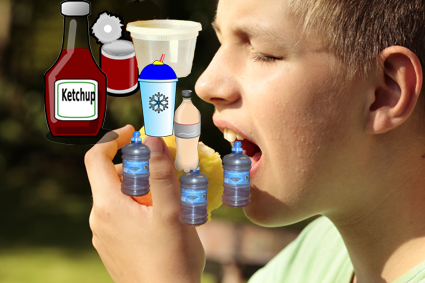 Most of us consume plastics in food. We don’t set out to do it, but some of our plastic technology disintegrates into our food and, therefore, into our blood.
Most of us consume plastics in food. We don’t set out to do it, but some of our plastic technology disintegrates into our food and, therefore, into our blood.
We buy cellophane wrapped produce which leaches into our food. We warm take-out dinners in plastic containers which leach some of their composition. Almost every can we use is coated with plastic-like substance to protect us from toxic aluminum. Bottles from beverages leach toxins. And then, there is plastic dinnerware that is easier to use than any other. Sadly, it allows for plastics in food.
BISPHENOL A (BPA)
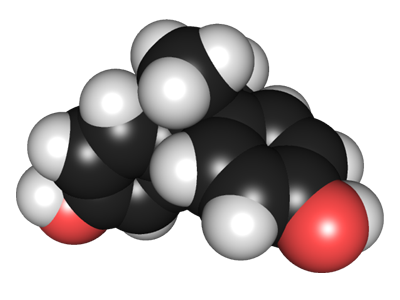 Bisphenol A (BPA) is a chemical that has been studied to find that it can disrupt estrogen. It is found as one of the ingredients in many plastics.
Bisphenol A (BPA) is a chemical that has been studied to find that it can disrupt estrogen. It is found as one of the ingredients in many plastics.
Anila Jacobs, senior scientist at the Environmental Working Group, says,
“Although most of the chemicals making the culinary crossing are considered safe, it’s not because they’ve been proven safe; it’s because no one has proven them unsafe.”
Laura Vandenburg, post doctoral fellow, biology, Tuft U, Boston, mentions the amounts of BPA that leach are small and says,
“Almost any plastic container can be expected to leach trace amounts of plastics into food,”
and
“The levels of BPA in people frequently exceed the levels shown to have effects in rodents in these studies.”
She also mentions that BPA can be found in the linings in cans.
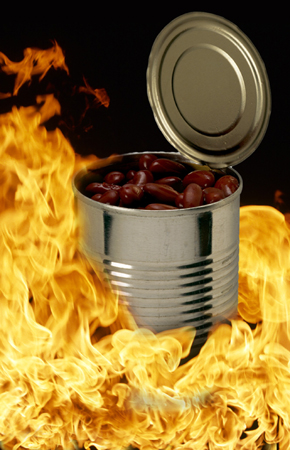 The National Congress Of Legislatures lists the following:
The National Congress Of Legislatures lists the following:
FDA has “expressed some concern” about BPA.
FDA bans BPA from baby bottles and sippy cups as of July, 2012.
The following states have banned BPA in plastic bottles or baby food containers that are intended for young, ages and exact items varying by state:
CA, CT, DE, IL, ME, MA, MN,NV,NY,VT, WI.
Washington prohibits sale, distribution and manufacture of empty bottles that contain BPA.
DC has banned BPA empty bottles if they are to be filled with liquid.
3 years earlier, Suffolk County, Chicago and Canada had banned baby bottles containing BPA.
Another 2 notes on BPA: the U.S. Senate has banned use of thermal receipt and cash register receipt paper because its BPA absorb into the skin at high levels.
According to a Journal of Environment Int’l. March, 2014, issue; BPA disrupts endocrine function and may change signals in feeding behavior. This may directly be related to obesity as neural circuits do not tell the body it is full.
BISPHENOL S (BPS)
As a result of pressure to remove BPA from many of our plastics; on some occasions, we have substituted BPS, bisphenol S. People are just hearing about BPA, so companies know that advertising BPA free on items plays on the public’s ignorance.
According to the Proceedings of the National Academy of Science study , published January 12, 2015; both BPS and BPA have caused abnormal brain development in zebrafish, a species deemed to be a good medical models for studying prenatal brain development to relate it back to humans. It also caused hyperactivity later in the growth cycle.
Unfortunately, BPS may be no better than BPA. So beware of the next chemical that arrives and know its safety first.
PHTHALATES
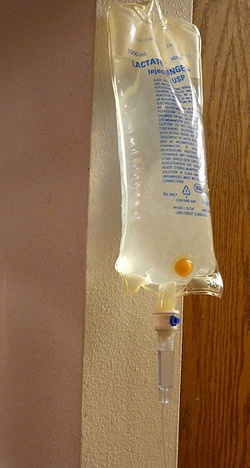 Phthalates are chemicals used in plastic to make it softer or more pliable. Picture one of those IV bags up on a pole that we see on TV or have received in the hospital to get fluids or medicine. The ones in the hospital contain DEHP, diethylhexyl phthalate. It makes the plastic less stiff so bags can be made with thickness to insure non-breakage.
Phthalates are chemicals used in plastic to make it softer or more pliable. Picture one of those IV bags up on a pole that we see on TV or have received in the hospital to get fluids or medicine. The ones in the hospital contain DEHP, diethylhexyl phthalate. It makes the plastic less stiff so bags can be made with thickness to insure non-breakage.
Although the substance does not leach a great amount if the bag is used right away, for those of us who use the 1000 ml sterile bag 100 ml at a time, as many of us do for our animals’ kidneys; DEHP free is always best and poses no phthalate danger.
So, in humans, phthalates can disrupt hormones, particularly testosterone.
They are found in PVC pipes, perfumes, glue, detergent, paint, kids’ toy packaging, shower curtains, food containers, liquid soap, milk, butter, meat. It leaches into our food.
It is banned in the EU as well as Japan, Argentina, Mexico and 6 more.
ESTROGENIC ACTIVITY – VERY IMPORTANT
Plastics can contain chemicals, like BPA and BPS, that cause estrogenic activity. These chemicals mimic estrogen and have effects on reproduction and health.
George Bittner, professor of neuroscience and CEO of two plastics companies, warns very clearly that consumers shouldn’t settle for products that were merely free of BPA. They should demand products that were free of any chemical with estrogenic activity.
LEACHING OF OTHER CHEMICALS INTO OUR FOOD
Although this article is about plastics, it may be worthwhile to research aluminum leaching from pans, a variety of chemicals getting into our food from the non-stick pans we use. Ceramic coated pans break down quickly and toxify, whereas pure ceramic pans last a long time. Glaze on porcelain is probably passing lead into your food and, therefore, your bloodstream.
I looked into buying an all ceramic pan to replace my $30 wok from the discount store. It retailed for $135.
PLASTICS IN FOOD RESEARCH
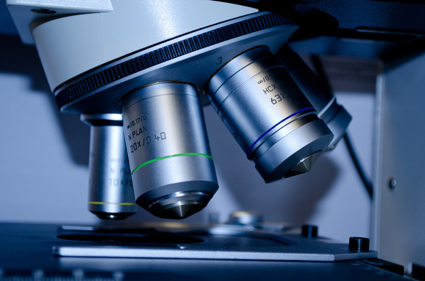 Why would no company or agency do research on whether or not plastics are safe? The answer has to do with, you may have guessed it, profit. If companies did research about plastics in food, chances are, someone would hear about it and publish the results The big D companies and the conglomerate cookware companies don’t want to do any research that might show their products are dangerous. They also discourage others from doing them.
Why would no company or agency do research on whether or not plastics are safe? The answer has to do with, you may have guessed it, profit. If companies did research about plastics in food, chances are, someone would hear about it and publish the results The big D companies and the conglomerate cookware companies don’t want to do any research that might show their products are dangerous. They also discourage others from doing them.
How? They don’t donate money to any entity doing this type of study; and, even if they were to commission a study, they have full rights to the information done in every study so that the researchers MUST share findings with these study donors and approve or disapprove publishing the finds.
Or they may make a donation to a research firm, entity, school so that the team does research on some other project. This is perfectly legitimate though not ethical. But the game of business sometimes chooses money over the greater good.
If it happens that some brave soul funds the project herself or gets a benefactor for the research; these mega companies will somehow promise ongoing donations to the university research lab or government agency research lab so that results from the independent study do not go poorly in favor of how unsafe plastic is for our food because the lab wants its money for next year and next year and the next.
CONCLUSION
Plastics in food are a reality. Our super solutions, like water bottles with BPA, BPS or our canned goods with phthalates were great ideas. Testing them did not go on long enough. Telling the public did not go on at all. And educating the public to how to choose utensils, cookware, drinkware is just starting to happen.
We are responsible for the knowledge. We are also responsible to know that manufacturers’ labels are put there to sell product, not educate us. Therefore, for everything we buy, it’s always a good idea to do the research first.
ACTION STEPS
1) Research containers that hold your water. Make sure you don’t research from the seller. Research the entire class of bottle for which you show interest, and see what the most current papers say. Again, make sure they are not authored by the manufacturer or on the manufacturer’s website.
2) Know that it is not enough to ask your friendly, neighborhood mall worker what’s in the cookware. Most people have no idea other than that someone said BPA was bad and the manufacturers’ sign says BPA free. Do the reading so you can help educate that mall worker and buy the best product for you that is certified Estrogen Activity free. And be on the lookout for the next chemical replacing BPS that may, again, be unsafe.
3) Pass on what you learn. Someone will be grateful.
![]()
If you wish to share your story, please hit reply in your email program to be contacted.
If you need habit help, go to warriorsofweight-consulting.
![]()
FEEDBACK
We value your feedback very much.
Please leave a comment below.
Please LIKE us on the website and at
WarriorsOfWeight on Facebook.
You can also follow us on Twitter @warriorsoweight.
Thanks.
![]()
DIANE GOLD, PUBLISHER AND AUTHOR
Diane Gold, Founder of Warriors of Weight, Turning Habits Into Health, is a mentor in tai chi, kung fu and meditation, a music, fitness and stress expert, dedicated mom, studying plant-based nutrition step and scertificate course, peaceful conflict resolution and habit replacement.
She broke her last bowl the other day, Melamine, made in China. She says,
“I was graced to have broken my melamine bowl. In looking for another bowl for salad/dinner/etc., I realized there is very little out there that is leach free. When something says BPA free, it’s probably true. The formulation does not, however, tell me what it’s not free of, meaning what replaced the BPA.
“It’s probably time to replace the dishes; its definitely time to buy a few pots. All the new information has me doing research as to what might be the least harmful of each, with eye appeal and low enough price. It’s a fun adventure I look forward to sharing.
“Finally, let us all take good care of ourselves, because we are so worth it!”
![]()







